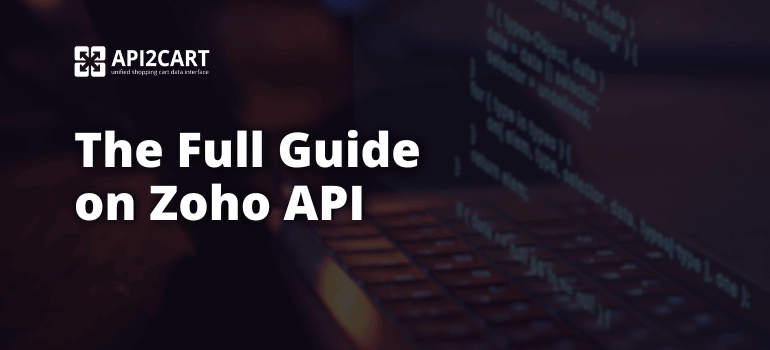
Introduction
Today, in the ever-changing eCommerce environment, integration with such powerful platforms as Zoho Commerce is a must for software providers that want to offer a complete solution to their customers. The integration is facilitated by the Zoho API that provides developers with the tools to create seamless connections between their eCommerce software and Zoho’s flexible platform. This article acts as a complete Zoho Commerce API guide for software vendors wanting to utilize its power, providing an understanding of its features and the steps needed to build strong integrations.
Overview of Zoho API
The Zoho Commerce API represents an essential channel for software developers who wish to integrate their eCommerce solutions with Zoho Commerce, a complete system for online shop management. With this API, developers are able to get access to all kinds of functions and data of Zoho Commerce ecosystem, which ensures smooth interaction and synchronization between their software and Zoho platform.
The Zoho Commerce API provides functions to manage products, orders, customers, and so on. The API enables developers to get, post, put, and delete numerous data entities that helps smooth data synchronization between their eCommerce software and Zoho Commerce. Also, Zoho Commerce API provides endpoints that cover operations like inventory management, order processing, shipping, and payment integration, enabling developers to build powerful and full-featured eCommerce solutions.
How Zoho Commerce API Follows REST Principles
The Zoho Commerce API follows the principles of Representational State Transfer (REST).
- Resource-Based Architecture: The Zoho Commerce API is built around resources that are the objects such as products, orders, customers, categories, and so on within the eCommerce platform. Each resource is identified by a URI (Uniform Resource Identifier), and developers can interact with these resources using standard HTTP methods like GET, POST, PUT, and DELETE.
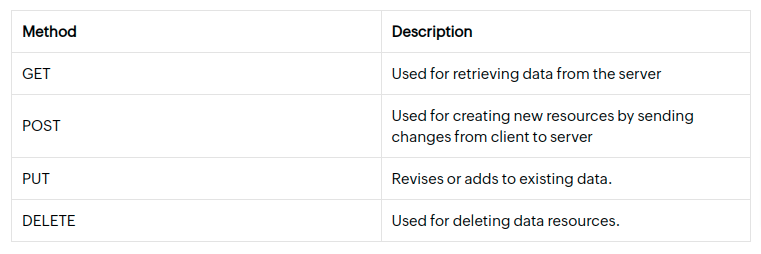
- Stateless Communication: RESTful APIs are stateless, as a result every client request contain all that the server needs in order to complete it. This rule is also observed, by Zoho Commerce API which does not have server-side client state after any requests. Every request sent to the API carries all the necessary parameters and authentication data, allowing the server to process the request on its own.
- Uniform Interface: RESTful APIs are characterized by the use of a uniform interface, which means that they use standard HTTP methods and have a consistent resource representation format. The Zoho Commerce API provides a consistent interface for resource access, using standard HTTP methods for CRUD operations (Create, Read, Update, Delete) and responses in a uniform format, typically JSON or XML.
Benefits of Integrating Third-Party Applications with Zoho
For eCommerce software providers who seek to improve their offerings in order to provide added value to their clients, integrating with Zoho offers a range of opportunities. First, when integrated with Zoho’s suite of eCommerce solutions, providers can provide their users with a whole ecosystem of tools and features to make online store management easy.
Zoho’s eCommerce platform offers a comprehensive set of features that can be used to complement and enhance functionalities of existing software solutions such as inventory management and order processing, customer engagement, and marketing automation. Such integration helps software providers to offer their users a more comprehensive and competitive solution which will enable them to effectively manage and grow their online business.
Furthermore, integration with Zoho allows eCommerce software providers to benefit from a large and varied customer base, hence extending their market reach and creating growth prospects. Through connecting with a trusted and widely used platform like Zoho, providers can access Zoho’s huge user base ranging from small businesses to enterprise-level organizations.
Third-Party Applications Integration with Zoho API via API2Cart
For businesses that are looking to extend their capabilities and improve their operations, the integration of third-party applications with Zoho API through API2Cart is a smooth and efficient way. API2Cart acts as a robust middleware integration solution that connects numerous eCommerce platforms, Zoho included, with third-party applications. API2Cart enables businesses to have a single API interface that makes the integration of their software with Zoho and other eCommerce platforms an easy process. This integration helps businesses to use Zoho’s wide array of functionalities and data.
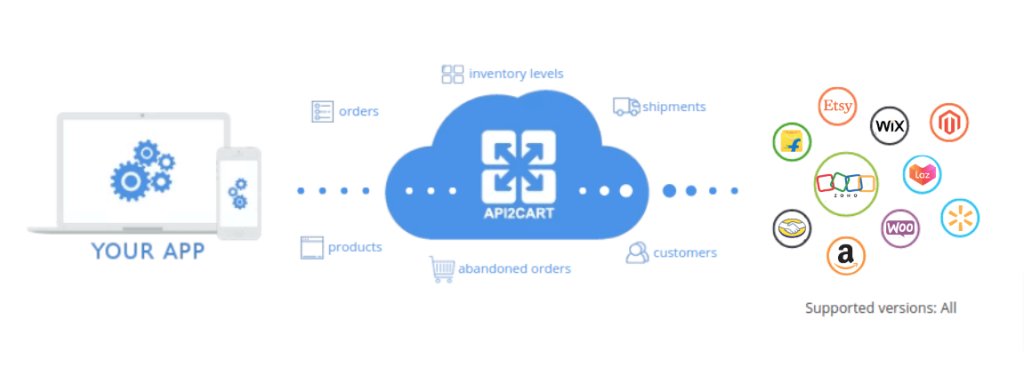
API2Cart provides a single API interface that removes the challenges of integration with several eCommerce platforms. This API streamlines the development process by offering uniform endpoints and data structures across multiple platforms. Begin using API2Cart unified API and a wide variety of API methods today to simplify your integrations and open new possibilities for your eCommerce software business. Just contact our specialists at any suitable time for you.

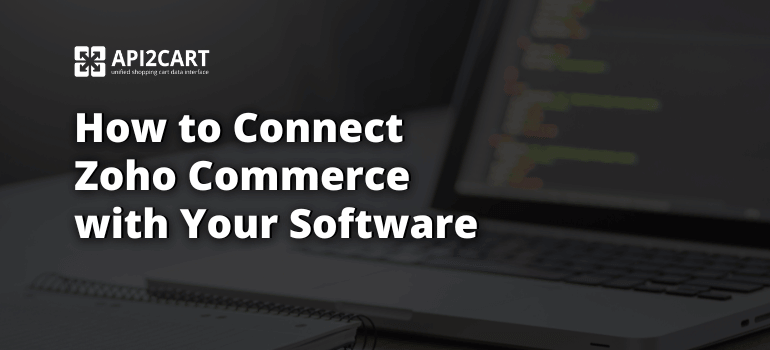
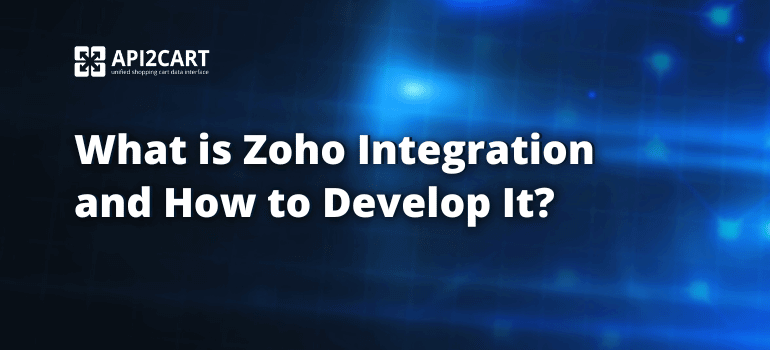

Marilyn Jordan
March 22, 2024 on 7:17 pm
I appreciate your creativity and the effort you put into every post. Keep up the great work!